



































We believe insurance should sound like a conversation, not a contract. So, we skip the jargon and meet you where you are—with tools, insights, and people who know your customers’ industries inside and out, from manufacturers and contractors to breweries and wineries.
That’s how partnerships work. And that’s how we work. Because at EMC, we’re all about Keeping insurance human®
Let’s get to know each other at emcinsurance.com





New IA&B Chair of the Board Andrew Enders, Esq. discusses the importance of collaboration and relationship-building among independent agents.
IA&B HR Consultant Karen DiGioia, of Herbein + Company Inc., updates employer guidance in response to rapidly changing state laws.
Review the employees of IA&B member agencies who earned their CPIA, CIC, CISR, and CISR Elite designations over the past year.


Our business has always been about risk. Anticipating risk. Analyzing risk. Despite our best effort (and hope), we cannot eliminate all risk.
While I’d love to know exactly what risk will challenge IA&B and its members over the next two years, I recognize that I need to be willing to evolve in real time. I am honored to step into the role of Chair; excited to serve our membership because I believe Independent Agencies are still the best risk advisors in the market. I believe IA&B is the right platform to help us stay there. As Chair, I hope to guide our board with focus and urgency, pushing us to stay ahead of the issues that matter most to the firms we represent.
These principles should also apply to how we run our agencies. We should not be caught off guard when expectations shift, cultural norms evolve, and the workforce looks, and acts, differently than it did two years ago.
Take cannabis. It is becoming legal in more places, socially accepted in more circles, and likely treated casually by more employees. If anything, this diverse legal landscape makes the risk that much more fraught and means that we need to think further ahead. Agencies need clarity of thought and strong internal standards that support both accountability and growth to navigate this new issue. See the feature article on page 14 for insights.
This exemplifies how IA&B plays a key role in helping agencies stay ahead of the curve. We cannot operate from yesterday’s playbook. We need to meet agencies where they are, challenge what’s outdated, and elevate the kind of thinking that keeps us essential in the eyes of the people we serve. This moment demands sharper leadership, not louder commentary.
If we want to keep calling ourselves advisors, we better prove we know what’s coming, both inside the agency, as well as out.

Cheers,

Andrew M. Enders, Esq. Chair of the Board
I love music, especially the thrill of sharing what I’m listening to. Here’s what I had queued up while drafting my commentary.
Oasis: Definitely Maybe; Tyler Childers: Snipe Hunter; MJ Lenderman: Manning Fireworks; The Pains of Being Pure at Heart: The Pains of Being Pure at Heart; Justin Townes Earle: Midnight at the Movies
INSURANCE AGENTS & BROKERS
650 Wilson Lane, Suite 200 Mechanicsburg, PA 17055
191 Main Street, Annapolis, MD 21401 800-998-9644 | IABforME.com
Andrew Enders, Esq. - Chair Enders | Harrisburg, PA
Kate Dawson, CPIA - Vice Chair Ferri Dawson Insurance | Murrysville, PA
Greg Bennett Famous & Spang Associates Aberdeen, MD
Tony Cusati Sitter Insurance LLC Erie, PA
Michael Gaetano
The Hartman Group Montoursville, PA
Debra McAfee McAfee Insurance Agency, LLC Wilmington, DE
Michael McGroarty, Jr., CIC McGroarty & Bradburn Insurance Pittsburgh, PA
Hunter McHugh McHugh Insurance Group Wilmington, DE
Shayne McIntosh, CIC JPI Insurance Associates Dillsburg, PA
Chris Miller, CIC
Miller Insurance Protection Team Jonestown, PA
Jill Nye Gunn-Mowery, LLC Lemoyne, PA
Lisa Parry, CPIA Parry Insurance Langhorne, PA
Bill Purdy Purdy Insurance Agency, Inc. Sunbury, PA
Kent Reynolds, CIC Blue Ridge Risk Partners LLC Hagerstown, MD
David Rivell, CIC, CRM Element Risk Management West Chester, PA
Christy Rose Avery Hall Insurance Salisbury, MD
Ashley Stafford, CPIA
Williams Insurance Agency, Inc. Rehoboth Beach, DE
Michael Thomas Lighthouse Insurance Svcs Gambrills, MD
Kyle Zehr FIFS, LLC Telford, PA
Mike Ertel (PIA)
AssuredPartners | Columbia, MD
Diana Hornung, CIC (IIABA)
IOA National, Inc. | Wilmington, DE
Mark Monroe (IIABA)
Downingtown, PA








This is an interesting question. While the answer is relatively straightforward, enforcement of applicable laws can often be hard to achieve. The situation described is generally referred to as tying. While some types of tying may be permissible, what you describe is seen as coercion and is prohibited. The prohibition is derived from federal law, as well as state statutes in Pennsylvania, Maryland, and Delaware. A brief summary of the prohibitions and the statutory references follow:
The U.S. Code addresses this issue at 12 U.S. Code Section 1972, which provides in part that:
12 U.S. Code § 1972 - Certain tying arrangements prohibited; correspondent accounts.
(1) A bank shall not in any manner extend credit, lease or sell property of any kind, or furnish any service, or fix or vary the consideration for any of the foregoing, on the condition or requirement -
(A) that the customer shall obtain some additional credit, property, or




IA&B Legal & Corporate Affairs Director Don Bankus Are you a member with a question? Contact Don at 717-918-9204 or DonB@IABforME.com.








A bank extending a loan to one of my commercial accounts strong-armed the customer into also switching his insurance to them. Is this permissible?
service from such bank other than a loan, discount, deposit, or trust service; or
(B) that the customer shall obtain some additional credit, property, or service from a bank holding company of such bank, or from any other subsidiary of such bank holding company.
In Pennsylvania, the issue is primarily addressed at 7 Pa.C.S.A. Section 6123(5), which provides as follows:
§ 6123. Mortgage loan business prohibitions.
(a) Mortgage loan business prohibitions.--A licensee [a mortgage broker/lender/servicer/ originator] engaging in the mortgage loan business shall not:
(5) Make any mortgage loan on the condition, agreement or understanding that the consumer contract with any specific person or organization for insurance services as agent, broker or underwriter.
In addition, a provision in the Pennsylvania Producer Licensing statute also prohibits “tying” by a financial institution at 40 P.S. Section 310.76, as well as requiring financial
institutions adhere to the following requirements:
40 P.S. Section 310.76. Required purchases of insurance
(a) Disclosures.--If a financial institution requires a person to obtain insurance in connection with a loan and the insurance is available through the financial institution, a licensee employed by or affiliated with the financial institution shall inform the person at or prior to the time of application that the purchase of the insurance from the financial institution is not a condition of the loan and will not affect current or future credit decisions. The licensee may inform the person that insurance is available from the financial institution.
(b) Acknowledgment.--If the person purchases the insurance through the financial institution, the licensee shall obtain a written statement or acknowledgment from the person prior to the purchase of the insurance stating that the person has been advised that the purchase of the insurance from the financial institution is not a condition of receiving the loan and will not affect current or future credit decisions.
Continued on page 23

By Bill Wilson
I sometimes get coverage questions from consumers who find my website or read an article I’ve written. In the past four months, I’ve received two pleas for help from policyholders who had auto comprehensive claims denied based on wear and tear and mechanical breakdown exclusions, both under recent ISO Personal Auto Policy (PAP) language.
The first claim involved damage to a vehicle’s electrical system due to a faulty RV park electrical hookup and was denied based on the mechanical breakdown exclusion. The second claim involved damage to the engine of a vehicle during a documented dust storm and confirmed by a mechanic that was denied by citing both the mechanical breakdown and wear and tear exclusions.
The current ISO PAP excludes [emphasis added]:
Damage due and confined to:
a. Wear and tear;
b. Freezing;
c. Mechanical or electrical breakdown or failure; or
d. Road damage to tires.
Note the “and confined to” language which prefaces the excluded perils. This exclusion does not apply to any ensuing damage that doesn’t directly result from perils like wear and tear and mechanical breakdown. So, what do these perils mean? For example, what is “mechanical breakdown”?
Probably the most notable source of policy language interpretation is the International Risk Management Institute (IRMI). According to IRMI, “Damage to equipment from an external cause is not excluded by the mechanical breakdown exclusion. Instead, the mechanical breakdown exclusion applies only to loss caused by an internal defect in the equipment.”
IRMI cites case law to support this interpretation such as Caldwell v. Transportation Ins. Co., 234 Va. 639, 364 S.E.2d 1 (1988) where the court opined, “[E]xclusion of losses caused by structural or mechanical breakdown or failure is restricted to losses arising from internal or inherent deficiency or defect, rather than from any external cause.”
This interpretation and cited case law support the contention that damage to a vehicle’s engine because of the intake of dust from a storm is covered by the PAP. Similar cases have found coverage for engine damage when refueling a vehicle with the wrong type of fuel or fuel that was contaminated.
On the issue of “wear and tear,” Black’s Law Dictionary defines this term to mean “Deterioration caused by ordinary use.” Wear and tear losses usually take place over a relatively long period of time. Immediate damage to an auto’s electrical system due to a power
surge or otherwise faulty electrical hookup is not normal wear and tear and not subject to this exclusionary language. It’s possible that the engine itself, for example having 200,000 miles on it, has wear and tear, but that doesn’t impact coverage for a relatively sudden external event. Wear and tear, when coverage is provided on an ACV basis, may impact valuation of the damage, but not coverage under these circumstances.
Finally, a moral to this story arises from the fact that two consumers sought me out online for assistance, one of them quite desperate for help due to a financial situation she was in. What they both had in common was that they were insured in the former case by a direct writer and in the latter case by a captive agency insurer. Claim advocacy is something you often get only from a good independent agent, and I made that clear to both parties.

Bill Wilson, CPCU, ARM, AIM, AAM is the founder and CEO of InsuranceCommentary.com and the author of six books, including the Amazon 4.8 star “When Words Collide…Resolving Insurance Coverage and Claims Disputes” which BookAuthority ranks as the #1 insurance book of all time. He can be reached at Bill@InsuranceCommentary.com.
Review non-standard forms and the variations from ISO forms that can lead to coverage problems.
PERSONAL LINES: READ THE %^&* FORM! OCT 16 2-3 PM
CE PA/DE: 1 GEN MD: 1 PC
IA&B Members: $25 (save $30!) Non-Members: $55
Register today. IABforME.com 800-998-9644, option 1
Rather listen?

Also available in audio format at IABforME.buzzsprout.com

IA&B members from Maryland greet Maryland Insurance Commissioner Maria Grant (left to right): Bryan Hanes, Antietam Insurance Associates Inc.; Greg Bennett, Famous & Spang Associates LLC; Kent Reynolds, Blue Ridge Risk Partners LLC; Michael Papa, Diversified Insurance Industries Inc.; Michael Ertel, AssuredPartners Columbia; Commissioner Marie Grant, Maryland Insurance Administration; Michael Thomas, Lighthouse Insurance Services; Christy Rose, Avery Hall Insurance; Danielle Webber, Maury, Donnelly & Parr Inc.
Maryland Insurance Commissioner Marie Grant attended the summer IA&B Board of Directors meeting, held Aug. 19 in Kent Narrows, MD.
Grant spoke about her “north star” – consumer protection. She also shared her goals of providing transparency in regulations, considering impacts of the Maryland Insurance Administration’s (MIA) actions, and relying on data to better understand current issues.
During the Q&A with IA&B members, the commissioner addressed several topics, including new tools and data, the homeowners’ market, and public adjusters.
The meeting ended with IA&B staff introducing Commissioner Grant to our new Insuring Careers Certification Program. The commissioner applauded our efforts and invited IA&B to participate in the MIA’s Education Advisory Committee. She concluded by affirming that insurance offers great career opportunities and that collectively the industry needs to spread the word about them.
IA&B sends its sincere thanks to the following member agents who recently completed their terms on the IA&B Board of Directors. Their contributions of time and expertise helped to provide strategic direction for the organization, which will benefit our membership for years to come.
Sarah Brown, CIC, CRM, AFIS Keller-Brown Insurance Services Shrewsbury, PA
Bruce Kraft, AAI, CIC Arbor Insurance Group Allentown, PA
Michael Papa, CIC, MBA Diversified Insurance Industries Inc. Hunt Valley, MD
Jason Rodriguez, CIC Prominent Insurance Services Wilmington, DE
Donna Roper EK McConkey & Company York, PA
Volunteer leaders with their years of service plaques (L-R): Jason Rodriguez, Michael Papa, Donna Roper, Bruce Kraft, and Sarah Brown

Congratulations to the staff of PDM Insurance Agency Inc. – an IA&B member agency with offices in Chambersburg, Dry Run, and Biglerville, PA – on the agency’s 25th anniversary.
Since opening the agency on Jan. 1, 2000, PDM President Rita McMullen has grown the business to include 10 full-time, licensed agents and two part-time office staff. Recently, Jessica McMullen and Chaz Timmons became partners in the agency, poising it for the long-term growth.
The PDM team prides itself on customer service. That commitment garnered several awards over the years, including the Business of the Year award from the Tuscarora Area Chamber of Commerce.
Is your agency celebrating a milestone anniversary? Whether its five years or 125 years, we want to
acknowledge your accomplishment. Email announcements and images to IA&B Public Relations Director KarenR@IABforME.com.
Join us on Oct. 27 for IA&B Pennsylvania Legislative Day, where IA&B members come together in Harrisburg to speak with lawmakers about the issues that matter most to independent agents, including minimum limits and roofing contractor fraud. Meet with your State Representatives and Senators to share real-world stories and shape policies that support our industry and our clients.
Save your spot today.
IABforME.com/ political_advocacy/ pa-legislative-day/
Questions?
Contact IA&B Government Affairs Director John Savant at JohnS@IABforME.com or 800998-9644, ext. 607.
As a result of enacted legislation, effective April 29, 2025 in Pennsylvania:
FLOOD TRAINING REQUIREMENT:
Producers with Property & Casualty line of authority must complete 2 hours of Flood CE per licensing period.
ETHICS TRAINING REQUIREMENT:
All producers must complete three 3 hours of Ethics CE per licensing period.
Visit Sircon.com to review your CE transcript and check your due dates to stay current with your license requirements.
IA&B offers these upcoming live webinars that can assist producers in their compliance:
Ethics, Diligence, Success: What Agencies Need to Know (3 Ethics credits) Oct. 9, 1-4 PM
Flood Insurance: What You Need to Know (3 Flood credits) Nov. 6, 9 AM-Noon
Continued on page 9

Facebook.com/IABforME
LinkedIn.com/company/IA and B

Instagram.com/IA.and.B
Continued from page 7
Ethics in Insurance: Protecting the Client and the Agency
(3 Ethics credits)
Nov. 20, 1-4 PM
Murky: Understanding Flood Coverage, Rules, and Claims (2 Flood credits)
Dec. 9, 1-3 PM
Ethics, Diligence, Success: What Agencies Need to Know
(3 Ethics credits)
Dec. 10, 1-4 PM
Register today: IABforME.com/eventregistrations
800-998-9644, option 1






Insuring Opportunity Through Mutual Success.®
Trust Harford Mutual Insurance Group to provide comprehensive property and casualty insurance designed to protect what matters most to your policyholders— their business.
In addition to contractors, we write a wide variety of Property & Casualty classes. Scan the QR code to learn more.

Andrew Enders, Esq. is President & General Counsel of Enders, a full-service independent insurance agency headquartered in Linglestown, PA. In September, he began his two-year term as Chairman of IA&B Service Group.
Q. How did you get your start in the insurance industry?
A. It was meant to be. I was born into it – third generation. Our family business was started by my grandfather, Don Enders Sr. My father, Don Enders, Jr. came into the business, and by the time I was 12 years old, I was going to work with him on Saturdays.
Q. Tell us about your agency.
A. Our agency, Enders, is headquartered in Linglestown, PA. We service all of Central Pennsylvania and well beyond. We are very much generalists, but have developed meaningful expertise in specific coverage programs. We’re a team of 65, and we love to work with families, businesses, and everything that surrounds us.
Our business is rooted in a family tradition, but we’ve expanded and grown, and we’re now part of Unison Risk Advisors, which is a much larger organization that was founded in late 2020 by two firms – one out of Baltimore and another out of Cleveland. We are the fourth platform partner and are thrilled to be a part of a bigger organization delivering more services to our clients throughout our entire service territory.
Q. Describe the makeup and purpose of the IA&B Board.
A. The IA&B Board is really important to us as independent agents. It provides a resource to communicate and collaborate with independent agencies across our entire operating territory. It functions as the governing body, to provide direction to IA&B and to make sure that the organization is responding to the needs of its members.
I’ve been so proud to serve on the IA&B Board for a few years now, and I’ve made amazing relationships and connections with agents across Pennsylvania, Maryland, and Delaware. I’m really excited about the future of the organization and the way that Board is building out on what we’ve done well for so many years while expanding our reach into new agencies that continue to pop up throughout our territory.
Q. Who has influenced your leadership style?
A. There have been so many people in my life who have been mentors, absolutely my mom and dad. My dad worked in the business for so long, and my mom was a public school educator for 40 years. They impacted how I communicate, focus on transparency, and really care about the team that I’m leading.
My leadership was enhanced by my time at the District Attorney’s office where I worked under the Honorable Edward S. Marsico Jr. He was an incredible leader of that organization and really counseled and coached us as brand new deputy district attorneys to do our best work for our community.
But beyond that, I think it’s my team that really influences my day-to-day actions. I make sure that I’m responding to their needs and making sure that they have the tools and resources that they need to be successful.
Q. What do you consider the most pressing issue currently facing the insurance industry?
A. The biggest challenges facing independent insurance agencies are constantly evolving. They’re never the same.
One of the most important things that IA&B does is to help keep independent agencies aware of things that they should care about. And beyond that, educate them on the ways that we, as an industry, can collectively or individually respond to those issues. Whether it’s a change in tax regulation or to minimum limits in a jurisdiction, IA&B provides us with resources to help ensure the best outcome for not just the agencies, but also for our clients and communities.
Q. Why should agents collaborate and work together?
A. We can’t look at ourselves as competitors all the time. I think there is a healthy level of competition, but it’s so important that we look at one another as peers. If we have open lines of communication with other agents in our communities, that provides a stronger resource and a stronger product for our clients and our communities.
IA&B helps to facilitate that by making safe spaces – places once removed from day-to-day insurance operations – for agents to come together and find ways to establish real, meaningful relationships.
I have created really strong relationships with other agents, not just in my immediate community, but now across Maryland and Delaware as well. That has helped to infuse me with new knowledge, new information, and new ways of thinking.
Q. What advice would you give young agents entering the field?
A. First, listen and learn and read and take in information from everywhere – even people who you don’t agree with. This industry is so complicated, so complex, that the more information and knowledge you build early on, the more productive you are going to be for your clients and your community forever.
Second thing, take opportunities to teach others. Even if you’re new to the industry, when you teach and share information and knowledge, it will do two things. It will make you more confident in that information and understanding, and it will help somebody else to grow.
I find that a lot of people who are new to insurance, who have that heightened level of competition, are missing out on so many opportunities to really develop friendships with other folks who are experiencing many of the same struggles and challenges in the industry. And it’s just a lot more fun to have friends rather than competitors all the time.

Delaware, Maryland and Pennsylvania independent agents know that strength lies not just in tradition — but also in the ability to evolve. The new Ironpeak name reflects our evolution from a small network of like-minded agencies to a national powerhouse with over 3,000 Members producing over $3.5 billion in written premium with our carrier partners.
The story began over 40 years ago with a simple mission: help independent agencies stay independent and grow profitably, without giving up their independence.
“When we started, we were focused on solving a problem that still exists today—how can local agencies compete without losing control? We built a model based on trust, shared growth and strong carrier relationships,” says Matt Ward, managing partner and executive vice president of Ironpeak.

Matt Ward Managing Partner and Executive Vice President of Ironpeak.

Today, Ironpeak is stronger than ever. In Delaware, Maryland and Pennsylvania, we have:
412 Member Agencies and growing.
Over $500 million in premium with carrier partners.
Eight dedicated advisors serving the region.
A no-equity, no-interference model.
Market access and bonus opportunities.
“We’ve never lost sight of what makes this work: being close to our Members, listening to what they need, and offering real solutions. Our team is deeply embedded in the market.” -Matt Ward
While the fundamentals remain, Ironpeak is evolving to meet new challenges with a future-oriented approach—one rooted in strategic planning, data analytics, and long-term advisory support.

Key initiatives moving forward include:
•Enhanced business intelligence tools to identify growth opportunities.
•Advisory services for perpetuation and expansion planning.
•Stronger carrier partnerships built around performance and profitability.
Ironpeak has also taken deliberate steps to remain independent and family-owned, ensuring that the focus remains squarely on serving independent agencies — not just today but for generations to come.
In a time when many networks are consolidating or pushing equity-sharing models, Ironpeak stands out for its commitment to agency independence, local presence and personalized support.


Marijuana. Possession and use remain federally illegal. However, as of June 2025, 38 states – including IA&B member states of Pennsylvania, Maryland, and Delaware, plus the District of Columbia – have comprehensive medical marijuana programs. Back in 2019 when this article was first published, that number was 33. Additionally, 24 states (up from 11 in 2019) plus the District of Columbia allow both recreational and medical marijuana, with several other states currently considering legalization. State laws continue to change quickly, so depending on when you’re reading this, some of these numbers may very well have changed again.
To some degree, we’ve learned to live with the ambiguity of the subject. However, if I’m totally honest, writing about this still makes me a bit nervous. The rapidly changing landscape and inconsistency between federal and state laws leaves many employers confused about what they can and can’t do when it comes to marijuana in the workplace. Even many HR professionals admit to finding it perplexing. While there’s much about this topic that is still

hazy, and I don’t claim to have all the answers, I’m going to focus on what currently is clear and try to eliminate some of the confusion. To keep things simpler, I’ll focus primarily on the state of marijuana laws in Pennsylvania, Delaware, and Maryland.
Currently, all three states have medical marijuana programs that make it legal for an individual with a medical marijuana license to buy, possess, and use medically prescribed marijuana, just like it’s legal to buy, possess, and use other prescribed medication. Maryland and Delaware also have legalized recreational marijuana purchase, possession, and use for adults 21 and over. While most are clear that, from a recreational use standpoint, it’s not OK to come to work high (just like it’s not OK to come to work drunk), many employers are not as certain whether it’s OK for individuals with medical marijuana licenses to use marijuana in the workplace or to come to work high for medical reasons. I have good news for you – this is one area where the current answer is very clearly “No!” (Did I just hear a collective sigh of relief?)
As an employer, you can and should take several steps to make this murky topic clearer and to protect yourself and your agency:
1. Prohibit marijuana use while on the job.
Just like (I hope) you would prohibit an employee from keeping a bottle of vodka in their desk drawer or a bottle of wine in the office fridge and taking a sip from said bottle over the course of the workday, you can and should prohibit employees from using marijuana (medical or recreational) in the office. (I’m not even going to touch on the beer fridges that have popped up in some workplaces. As insurance professionals, I’m guessing that’s not happening in your office).
2. Understand that, with some limited exceptions, it's not okay to refuse to hire or to fire or discipline an employee strictly for the use of medical marijuana.
The key word in the statement above is “strictly.” As we’ll talk about in a moment, it’s fine to deal with impairment at work if it occurs, but it’s not OK to take action just because an employee has a medical marijuana license or uses medical marijuana. Several states, including Pennsylvania and Delaware (not Maryland), have employee protection laws in place that make it unlawful to fire or discipline an employee strictly because that employee is licensed to use medical marijuana, or to fire or discipline an employee with a medical marijuana license who tests positive for marijuana use in a drug test, unless failing to do so would cause the employer to lose a monetary or licensingrelated benefit under federal law or regulation.
For more detail regarding the current laws in each state, see below:
Pennsylvania: The Pennsylvania Medical Marijuana Act (MMA) prohibits employers from firing, threatening, refusing to hire, or otherwise discriminating against an employee based strictly (there’s that word again) on their status as a certified medical marijuana user. Employers, however, are not required to accommodate the use of medical marijuana on the premises and may discipline employees who are under the influence at work.
Continued on page 17

By Karen DiGioia, Herbein + Company Inc.
Continued from page 17

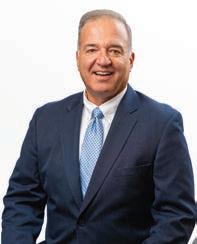
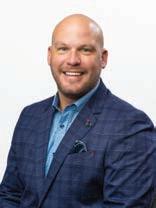




Continued from page 15
Additionally, employees with more than 10 nanograms of THC per milliliter of blood may not perform certain defined tasks where safety is a concern.
Delaware: Like Pennsylvania, the Delaware Medical Marijuana Act (DMMA) prohibits discrimination against employees based on their status as medical marijuana cardholders and similarly, employers are not required to accommodate the use of medical marijuana on the premises and may discipline employees who are under the influence at work. Delaware law does not provide protections for off-duty recreational marijuana use.
Maryland: Maryland's medical marijuana law does not explicitly prohibit employment discrimination based on medical marijuana use. Employers are permitted to maintain drug-free workplace policies and may take adverse actions against employees who test positive for marijuana, especially if not doing so would violate federal law or cost the employer federal benefits.
3. If an employee comes to work impaired, whether it's due to marijuana use (medical or otherwise), alcohol use, or use of prescribed (or unprescribed) medication, deal with the impairment as a performance issue, rather than focusing on the use of the substance.
This one’s pretty straightforward. If an employee had four beers for breakfast and came to work drunk, you’d handle this as a performance issue. The issue is not the use of alcohol; the issue is on-the-job impairment. Deal with marijuana the same way. Document the performance deficit in detail, focusing on the expected standards of performance. If possible, have signed statements from others who witnessed the behavior. If your policy is to test when impairment is suspected, drive the employee to the drug-testing facility (please, don’t have them driving themselves if you suspect that they are impaired). Meet with your employee, as you would with any other performance issue. Talk about the performance, the behavior and the related consequences. Consistently follow the policies that you have in place regarding both performance issues and substance use/abuse (more on that below).
4. Clearly communicate agency policy regarding workplace use of marijuana and other substances, the consequence of noncompliance, and the process that will be followed if non-compliance is suspected. Enforce your policy consistently.
As we’ve already recognized, this is a confusing subject – and that’s true for employers and employees alike. Don’t assume your employees understand what’s OK and what’s not. Employees may wrongly assume that if they can legally use marijuana, they can do so at work without consequences. It’s still OK for employers to implement drug-free workplace policies. Adopt a written policy regarding substance use and communicate it to your employees. Ensure that your policy prohibits both marijuana use in the workplace and impairment in the workplace and during work time. Ensure that you and your managers know how to identify marijuana impairment.
So far, I’ve primarily focused on the things that are clear. Now, I’m going to move on to an area that is less so: testing. Drug testing — especially pre-employment testing for drug use that includes marijuana — is a practice that is increasingly being questioned and reconsidered by many employers.
Employees covered by Department of Transportation rules — those in safety-sensitive jobs like trucking, airline, and masstransit work — must still be tested for alcohol and drug use. But what about organizations where testing isn’t mandated?
As marijuana legalization continues to evolve across the United States, employers are facing increasing pressure to update their drug testing policies, particularly concerning pre-employment marijuana screenings. Several states have existing laws that prohibit or restrict pre-employment drug testing for marijuana. Within our membership geography, Philadelphia is currently the only jurisdiction that – with limited exceptions – prohibits employers from requiring prospective employees to submit to marijuana drug testing as a condition of employment.
From a legal standpoint, restrictions on testing are still the exception, not the rule. However, many employers are nonetheless moving away from pre-employment drug testing. Quite honestly, it’s often because such testing screens out too many otherwise qualified candidates. In
Continued on page 18
Continued from page 17
today’s highly competitive labor market, some employers are deciding that it just doesn’t make sense anymore. In states that have legalized recreational marijuana, the practice of making employment decisions based on tests that reveal marijuana use has become even murkier.
Add to all this the fact that testing for marijuana use is much different than testing for alcohol. Alcohol tests clearly show impairment and recent use. Marijuana testing is less clear. There’s no common level of THC that indicates that a person is impaired, and THC can show up in a test as many as 30 days or more after use. This means that a test can come back positive for THC, but this doesn’t mean that the employee was high at the time of the test. As a practice, the current shift, especially for positions where safety is not a concern or where testing is not mandated, is to discontinue pre-employment testing and utilize testing only when an employee appears impaired or when an accident has occurred. Many organizations are also shifting, whenever possible, to tests that measure performance impairment rather than the presence of THC in the employee’s system.

If your practice has been to conduct pre-employment tests, it’s a good time to give careful consideration to why you do it and ensure that you still feel that it is important. If you do decide to continue testing, review the type of test that you use and keep yourself updated on the legal state of this topic.
I’m hopeful that this article has helped to clear away some of the confusion around the topic of marijuana in the workplace (a girl can dream, can’t she?). However, it’s important to recognize that there are still murky areas and the evolution of this topic will continue. What’s true today may not be true tomorrow. Your best bet is to stay on top of the subject and, as always, if you have any questions or concerns, don’t hesitate to drop me an email (khdigioia@ herbein.com) or give me a call at 484-465-1201.


Karen DiGioia provided this article on behalf of Herbein + Company, Inc., IA&B’s contracted human resources consulting firm.
Rather listen? Also available in audio format at IABforME.buzzsprout.com

Our original specialty, Workers’ Comp has long served as the anchor line for our growing suite of commercial products. We distinguish our coverage by providing a host of value-added services before, during, and after a claim.
www.guard.com



IA&B brings you educational designations developed by the American Insurance Marketing and Sales Society (AIMS) and Risk & Insurance Education Alliance (the Alliance). IA&B recognizes the following employees of member agencies who advanced their career by earning an industry-leading designation. AIMS offers the Certified Professional Insurance Agent (CPIA) designation, and the Alliance administers the Certified Insurance Counselor (CIC), Certified Insurance Service Representative (CISR), and CISR Elite. To learn more, visit IABforME.com/education.
June Everett Donegal Insurance Group
Katherine Feola Assured Partners of Northeastern PA
Sandy Haley YMI Agency, Inc.
Stephanie Bordner Homesale Insurance
Trent DeHart Assured Partners of Northeastern PA
Kevin Duffy Strickler agency Inc.
Kellie Eschbach Alera Group
John Amenta Pratt Insurance LLC
Nicholas Barndt Brown & Brown Insurance Services Inc.
Corinne M. Bentz Alera Group - Lebanon, PA
Leanne Berchtold Erie Indemnity Company
Igor Bodnar Assured Partners of Northeastern PA
Linda Cook Lechner & Stauffer Inc.
Kevin Crumbling Kocman Insurance Group
Matthew Hoertz Milestone Insurance Agency Inc
Paige Hull YMI Agency, Inc.
Maria Kasapidis Gallen Insurance
Miranda Lake Strickler Agency Inc.
Rachel Raab
Alethea DiAngelus Whitford Insurance Network, Inc.
Megan Duffy ECBM Insurance Brokers & Consultants
Lisa Farrell McConkey Insurance & Benefits
Angelina Fletcher Blue Marsh Insurance
Stephanie Fox Erie Indemnity Company
Christine Friebe Turner Insurance Agency, Inc.
Corbin Kalchthaler Kalchthaler Insurance Agency, Inc.
Carrie Kauffman McGowan Insurance Agency LLC
Karissa Kleczka Keller-Brown Insurance Services
Emelia Lawrence Erie Indemnity Company
Amanda Mark Erie Indemnity Company
Henry Dunn Inc
Carl Ruppel REMCO Insurance Services
Lauren Sanchez The Hess Agency
John Yoder Christian Baker Company
Maryland CPIA Designee
Timothy Harris Blue Ridge Risk Partners
Anita Kotrick
Moody Insurance Worldwide
Sujin Lee
Moody Insurance Worldwide
Veronica Martin Contemporary Insurance Inc.
Janet Monn Rossbacher Insurance Group
Nathan O'Donnell Brown & Brown Insurance Services Inc.
Melissa Pattison Erie Indemnity Company
Gregory Peil Selective Insurance Company
Anthony Pilla Selective Insurance Company
Alexandra Romig CrossKeys Insurance
Amy Seitz McConkey Insurance & Benefits
Loretta Shotsberger Enders Insurance
Tyler Smith Enders
Analisa Spagnola Collens Wagner Agency Inc
Tammy Mohr
Moody Insurance Worldwide
Brenda Reed Moody Insurance Worldwide
Marie Taylor
Moody Insurance Worldwide
Emily Walch Moody Insurance Worldwide
Rebecca Wall-Liebergot Moody Insurance Worldwide
Ryan Winpigler Blue Ridge Risk Partners
Kassie Swope Bowman's Insurance Group
Melissa Tusick Erie Indemnity Company
Elizabeth Yothers CBIZ, Inc.
Amanda Lewis-Hohman
Avery W Hall Insurance Agency
Jacob Oliver Maury Donnelly & Parr Inc
Jessica Roop Barnes-Bollinger Insurance Services
Jordyn Tievy ACNB Insurance Services, Inc.
Joshua Palmer
Blue Hen Insurance
Pennsylvania CISR Designees
Amy Baer
Sarvey Insurance
Emma Broomhead
REMCO Insurance Services, Inc.
Nicole Cable Hoak Insurance Services
Amanda Call
The Yurconic Agency
Steffany Carr
Murray Insurance Associates, Inc.
Julia Ciliberto
Kerber Insurance Associates LLC
Emily Connor Kerber Insurance Associates LLC
Jessica Coup
Gilbert's Risk Solutions
Crystal Cruz
Element Risk Management
Victoria Davis
Miller's Insurance Agency
Emily DeVine
Edmiston's Insurance
Kelly Dixon
Saleme Insurance
Nicole Erickson
Body Borneman Associates, Inc.
Taylor Ferguson Gannon Associates Insurance Agency
Virginia Foulkrod
MPB Insurance & Risk Management
Amber Fox
Alera Group Corporate
Jennifer Gastan
Glatfelter Insurance Group
Cheryl Goff Robertson Insurance Group
Rebecca Goodman
Hinkle Insurance Agency
Lynette Gump World Insurance Associates
Tracie Hackett
Kelly Insurance Agency
Amy Harper Martin Insurance Agency
Gregory Hensley Gerhart, Hartman & Ritner Insurance
Kimberly Hughes Day Insurance Agency Inc
Stephanie Jobe Evergreen Insurance LLC
Janet Kerchinski Sarvey Insurance
Ashley Kerr The Kerr Agency LLC
Michael Krzanowski W.N. Tuscano Agency, Inc.
Jackie Leasure Reinhardt's Agency Inc.
Elizabeth Linberger Lacher & Associates
Sally Lundgren
Wagner Giblin Insurance a Division of Gunn Mowery
Rebecca Mariconda Brown & Brown Insurance Services Inc.
Sarah Montgomery Murray Insurance Associates, Inc.
Tasha Morita Univest Insurance LLC
Mary Parlock B & W Insurance Agency
Nicolas Prego McConkey Insurance & Benefits
Luke Price C W Howard Insurance Agency
Danielle Price Element Risk Management
Tiffany Randall Gannon Associates Insurance Agency
Elizabeth Redding Levy Insurance Agency, LLC
Tiffany Redford Gannon Associates Insurance Agency
Kristin Rhodes Gannon Associates Insurance Agency
Gunnar Riley Henderson Brothers, Inc.
Phylicia Ross Univest Insurance LLC
Madison Sauers Brown & Brown Insurance Services Inc.
Victoria Saxon
CA Thrush Insurance Agency
Michael Schaninger
Arthur Hall Insurance
Kati Seddon Brown & Brown Insurance Services Inc.
Kinley Sheesley Sholley Agency Inc.
Rebecca Small Day Insurance Agency, Inc
Melissa Stewart
Williams-Cleaveland Company
Melissa Stofka Unruh Insurance Agency, Inc.
Evette Torres Brown & Brown Insurance Services Inc.
Aubra Wachter Loesel Schaaf Insurance Agency, Inc.
Beth Weaver Good's Insurance Agency, Inc.
Shawn Marie Weisberg FIFS, LLC
Sierra Williams McConkey Insurance & Benefits
Brittany Wilson Bartlett & Company Inc.
Mackenzie Yerger Harding-Yost Insurance Associates, Inc.
Tiffany Young The Kerr Agency LLC
Maryland CISR Designees
Heather Dillon
Moody Insurance Worldwide
Andrew Fried
McArdle Insurance Agency
Marie Henry Moody Insurance Worldwide
Samantha Kamm Fleetwood Insurance Group
Samantha Marcum Crothers Insurance Agencies
Erika Palacios
AAG Insurance Enterprises Inc.
Helen Rabasca
Diversified Insurance Industries, Inc.
Tracey Seibel Richardson Insurance Group
Crystal Stavely Avery W Hall Insurance Agency
William Taylor
HUB Mid-Atlantic
Bridget Wiegert
HUB Mid-Atlantic
Renee Wolfe
Donald C Bowers Insurance agency
Delaware CISR Designees
Lisa Bailey Good's Insurance Agency, Inc.
Alissa Weathers
CBM Insurance Agency LLC
Pennsylvania CISR Elite Designees
Erin Battaglia Hoak Insurance Services
Brooke Dennis McConkey Insurance & Benefits
Mark Ford Trinity Risk Services LLC
Cindy Heffner Glatfelter Insurance Group
Jordan Parker Brown & Brown Insurance Services Inc.
Hilary Peddigree Walton-Ebert Insurance Agency
Laura Raifsnider Valley Agency Company
Jeremiah Reichert Walton-Ebert Insurance Agency
Cassandra Rock RWR Group, Inc
Christine Ruth Arthur Hall Insurance
Abigail Shirey Church Insurance Specialists
Cheryl Shoemaker ACNB Insurance Services
Tiffany Shore Insurance Centers, Inc.





Continued from page 3
In Maryland, the Maryland Code addresses coerced or tie-in sales in Chapter 27 of the Insurance Code, which governs Unfair Trade Practices (MD Code, Insurance, Section 27214(a)(1) and (2)), which provides, in part, that:
§27–214.(a)
(1) A person may not require another person to buy insurance through a particular insurance producer or insurer as a condition, agreement, or understanding with respect to selling or providing a loan, credit, sale, goods, property, contract, lease, or service to the other person.
(2) An insurance producer or insurer may not participate in a combination plan or transaction prohibited by paragraph (1) of this subsection.
The above prohibition is supported in the Maryland Code, Commercial Law, at Section 12-124 (MD Code, Sections 12-124(a)(2) and (5)), which provides:
§12–124.(a)
(2) A lender may not require a borrower, as a condition to receiving or maintaining a loan secured by a first mortgage or first deed of trust, to provide or purchase property insurance coverage against risks to any improvements on any real property in an amount exceeding the replacement cost of the improvements on the real property.
(5) A lender may not require that the insurance be purchased through
a particular insurance producer or insurance company.
Delaware statutes address tying arrangements in the Banking Code at 5 Del.Code Section 929(a)(1) and (2), which provides, in part, that:
§ 929. Tying arrangements prohibited.
(a) No bank or trust company shall, either directly or indirectly through any subsidiary, division or 3rd person, in any manner extend credit, sell any product or furnish any service to any person, or fix or vary the consideration for any of the foregoing, on the condition or requirement that:
(1) The person shall obtain some additional credit, product or service from such bank or trust company or its affiliate other than a loan, discount, deposit or trust service; or
(2) The person provide some additional credit, product or service to such bank or trust company or its affiliate other than those related to and usually provided in connection with a loan, discount, deposit or trust services; or […]
The above prohibition is reinforced in the Insurance Code at 18 Del. Code Section 2304(23)(a)(1), which provides that:
Section 2304. Unfair methods of competition and unfair or deceptive acts or practices defined.
(23) Tying arrangements; cancellation; disclosure.
a. No person who has received the name of any actual or potential borrower from any bank or trust
company which engages, directly or indirectly, in any activity authorized by § 761(a)(14) of Title 5 shall, with respect to such borrower:
1. Engage in any of the activities prohibited to such bank or trust company by § 929 of Title 5.
Notwithstanding what can certainly be argued to be ample federal and state prohibitions, enforcement of the prohibitions can be elusive, primarily because:
▲ Absent a customer complaint, it’s unlikely you’d independently have sufficient, verifiable evidence between the affected customer and the lender to establish and support a violation; and
▲ As a third par ty, you may not have standing to file a complaint. As a rule, the affected customer is the one who would be required to do so, and, more often than not, consumers may lack the will to file an action against their bank and challenge a financial transaction they have just negotiated, and from which they have likely derived a benefit.
This document is not a legal opinion and should not be relied upon as such. The intent of this document is to provide a general background regarding the topic or topics discussed, not to provide legal advice. Producers and agencies should consult an attorney regarding specific situations and specific questions with respect to the topic or topics covered in this document. Neither the Insurance Agents & Brokers nor any of its employees shall be responsible for any errors or omissions regarding any statements made in this document, nor any errors or omissions regarding any statutes, regulations, court rules, and/or any other government documents cited in this document.
Rather listen?

Also available in audio format at IABforME.buzzsprout.com


Capital Region Insurance Agency
Lemoyne, PA
AlexLada, LLC
Elkins Park, PA
Red Maple Insurance Wilmington, DE
For information about membership or benefits, contact: Tim Wonder, VP-Membership 717-918-9223
TimW@IABforME.com

A thriving independent insurance agent community.
To serve as a driving force to champion independent agency success by educating, consulting, advocating, and fostering community in Pennsylvania, Maryland, Delaware, and beyond.
Editor: Karen Robison
KarenR@IABforME.com 717-918-9209
Contributing editors: Jennifer Ross, Megan Fioretta, Sarah Haas
Sales Account Executive: Rebecca Sieg | 717-430-2351
rebecca.sieg@theygsgroup.com

Risk is everywhere. In everything. With Applied Underwriters by your side, the gears of commerce, innovation, and exploration keep turning. Experience the unrivaled heart and unwavering service that only Applied delivers.
Learn more at auw.com or call (877) 234-4450.